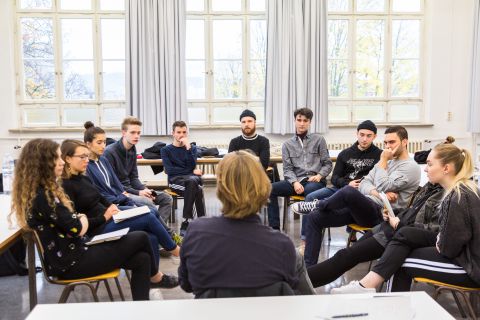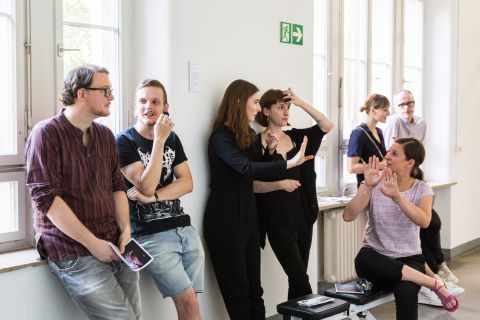Digitalization is leading to an increasing convergence of technical practices

Digitalization is leading to an increasing convergence of technical practices

Digitalization is leading to an increasing convergence of technical practices within professional areas that are traditionally and socio-economically still extremely heterogeneous. This program, therefore, is dedicated to facilitating argumentation and work that is discriminating, principally conceptual, and theoretically based. At the same time, it reaches well beyond the individual disciplines.
Cultural theory at the Merz Akademie is particularly seen as indebted to the idea of an authorship in the field of art, design, and media. The reason for the focus on authorship is in part the assessment that in a digital culture it is not only pre-existing tools – communicative or artistic – that will be used to work on tasks, but that the tools themselves will have to be worked on. The central idea is that a theoretical permeation of the cultural present is also necessary for any comprehensive awareness of the cultural, social, and politico-historical background of the field.

This authorship will mean something different for an artist than it will for a graphic designer in an agency, a documentary filmmaker, a game designer, or someone involved in VR development. The field of cultural theory helps the students to reach the demanding goal of becoming an “author in design, art, and media.”
On the one hand, they should be familiar with the fundamental current discourses of these areas. On the other hand, the students should also become sensitized to contemporary tendencies of mixing the liberal arts and related fields.

With all this in mind, the theoretical subjects at the Merz Akademie have been divided into three areas: Aesthetic Theory, Cultural Theory, and Art History. This is preceded by a general introduction to scholarly thinking (humanities) and work in the first semester. In turn, the four-part division of studies into the core areas Film and Video, New Media, and Visual Communication is the foundation for a further series of courses concerned with the theoretical side of these fields. This means, for instance, the theory of media, of film, and of design and their semiotics. Specific knowledge is conveyed for the core areas, and furthermore all students acquire fundamental knowledge of cultural-historical and semiological questions.
